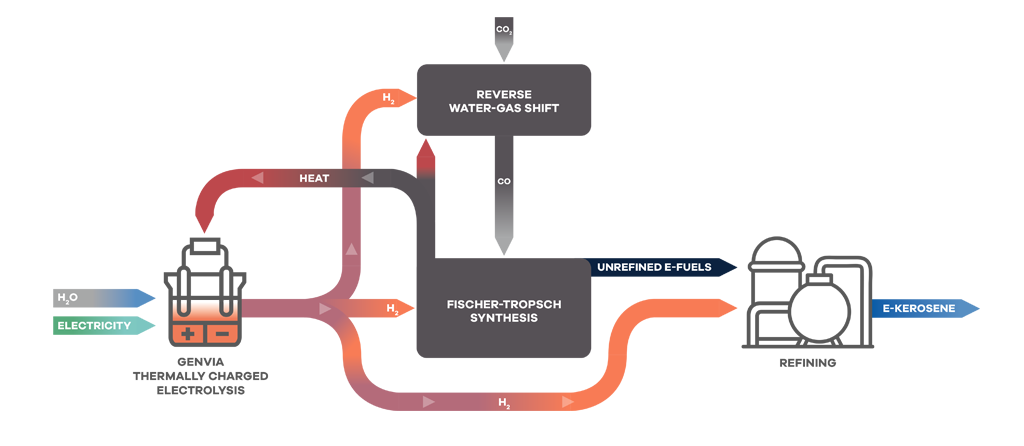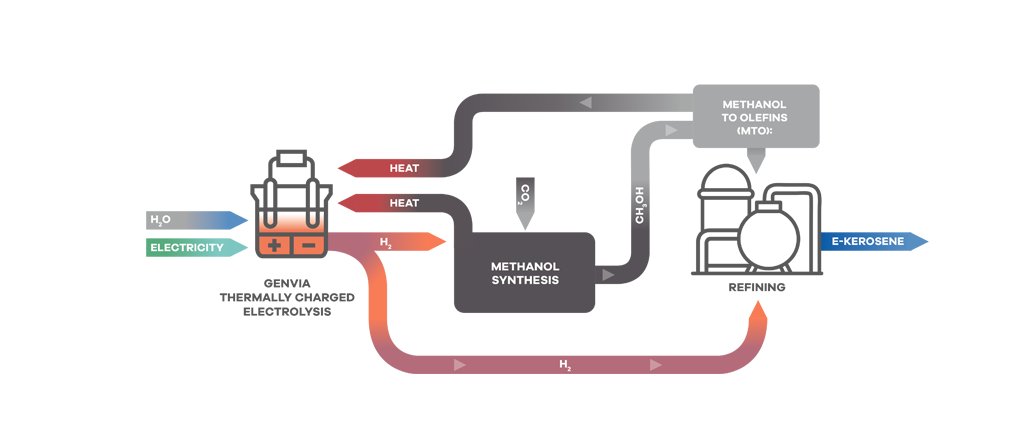While new aircraft can be up to 20% more efficient, growth in activity has historically outpaced any efficiency improvement.
International Energy Agency
While acknowledging the technical complexity and range of measures required to reduce flight-based carbon emissions, the IEA suggested that the aviation sector can ‘lead the way in bringing nascent decarbonisation options to scale’.
Deliver decarbonised air transport
Genvia supports fuel producers, airlines and aircraft manufacturers in the transition to sustainable aviation fuels (SAFs) generated from low-carbon electricity as a direct ‘drop-in’ replacement to conventional fuels.
From passenger aircraft to cargo planes
By redeploying the heat energy that would otherwise be lost, our thermally-charged electrolysis process is engineered to help achieve the lowest cost of liquid. Producing SAF at scale in the most cost-competitive way is vital to the industry-wide adoption of cleaner fuels, while helping reduce the financial burden of decarbonisation.

Helping decarbonised air transport take off
Genvia is currently completing an engineering study with Airbus on power-to-liquid to support the development of e-kerosene.

More hydrogen, fewer losses

Genvia’s high efficiency solid oxide technology delivers more energy-efficient electrolysis performance when compared to existing PEM and alkaline-based systems.
*Percentage recycle improving with development
Numbers in kWhr/kg H2
However hydrogen fits into your decarbonisation strategy, speak to Genvia about ways to produce higher volumes of H2 in-situ at a lower electricity input.



